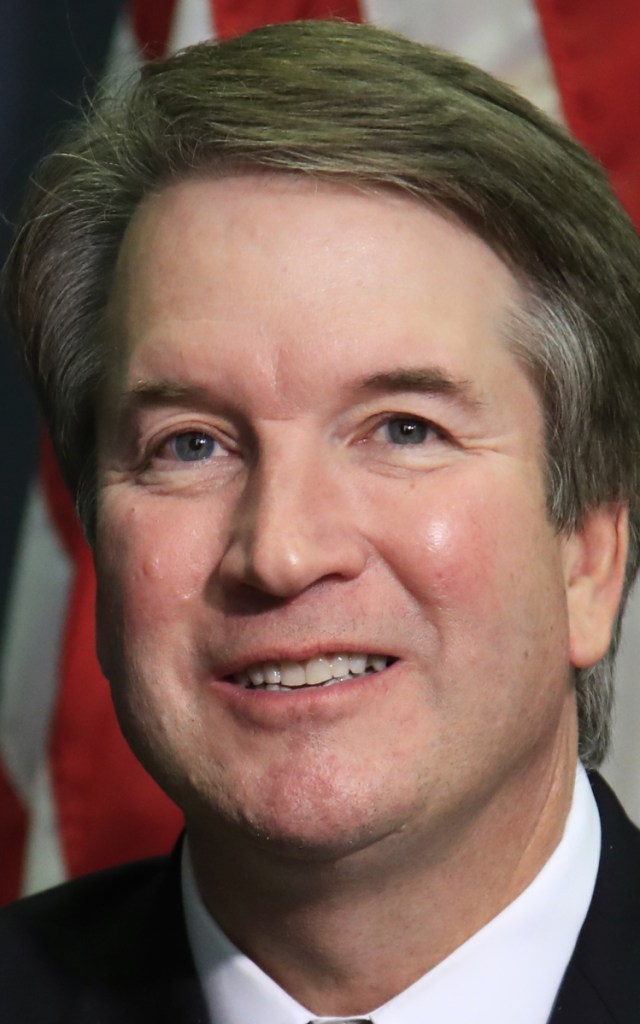WASHINGTON — President Trump will not release more than 100,000 pages of records from Supreme Court nominee Brett Kavanaugh’s tenure in the George W. Bush White House, claiming executive privilege.
The White House’s decision was disclosed in a letter sent to the Senate Judiciary Committee on Friday ahead of Kavanaugh’s confirmation hearings this week.
A Bush representative who has led a team of attorneys reviewing Kavanaugh’s papers confirmed that lawyers have finished going through the records and have turned over about 415,000 pages to the committee, although about 147,000 of those pages are being withheld from public view.
“President Bush directed us to proceed expeditiously and to err as much as appropriate on the side of transparency and disclosure, and we believe we have done so,” attorney Bill Burck, who serves as Bush’s presidential records representative, wrote to the committee.
Burck said in the letter that 101,921 pages are not being given to the committee because the White House believes they are protected by presidential privilege and, after discussions with the Justice Department, “has directed that we not provide these documents for this reason.”
The Presidential Records Act allows both the former administration and the current White House to claim privilege on presidential documents. A White House spokesman, Raj Shah, said Saturday that he will let the letter, first reported by The Associated Press, speak for itself.
“Judge Kavanaugh, an associate and senior associate White House counsel, dealt with some of the most sensitive communications of any White House official,” Burck wrote.
The major portion of the documents withheld for privilege “reflect deliberations and candid advice concerning the selection and nomination of judicial candidates, the confidentiality of which is critical to any president’s ability to carry out this core constitutional executive function.”
The battle over Kavanaugh’s documents has been a dominant storyline in the fight to replace retired Justice Anthony Kennedy.
Kavanaugh was nominated on July 9, and his confirmation could tilt the balance of the Supreme Court for a generation.
Senate Democrats have been infuriated that Republicans have requested documents just from Kavanaugh’s two years as associate White House counsel as the Senate reviews the nominee’s record.
Democrats have also pushed for records from Kavanaugh’s three years as Bush’s staff secretary, but Republicans say that demand is excessive and that those papers are irrelevant to Kavanaugh’s nomination.
President Obama did not claim privilege on any of the documents involving now-Justice Elena Kagan, the last Supreme Court nominee to have served in a White House, according to Christopher Kang, who was a deputy counsel under Obama.
“This may be the latest and most dramatic breach in the process, but we already knew it was a sham, broken at every step along the way,” said Kang, who is now with Demand Justice, an advocacy group working to defeat Kavanaugh and other conservative judicial nominees. “The issue now is what are Democrats going to do about it? Unite in opposition? Boycott the hearing? This kind of brash coverup requires an equally forceful response.”
A senior Senate Democratic aide said Democrats believe this is the first time a sitting president exerted privilege under the records law to prevent disclosure of presidential documents to Congress, citing their conversations with National Archives officials.
Senate Minority Leader Charles Schumer, D-N.Y., called the disclosure that the Trump White House is withholding more than 100,000 pages of Kavanaugh’s records a “Friday night document massacre” and said it has all the makings of a coverup.
“Republicans in the Senate and the president of the United States are colluding to keep Judge Kavanaugh’s records secret and trying to hide their actions from the American people by doing it on the Friday night of a holiday weekend,” Schumer said.
“What are they trying so desperately to hide?” Schumer asked.
Send questions/comments to the editors.


